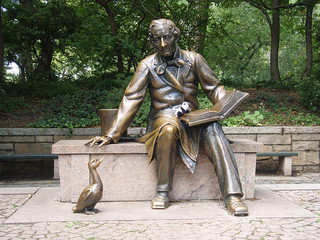Don’t Bore the Grandchildren With Your Family History Book
Biff Barnes
“One in three children admit they don’t want to listen to their grandparents because they find them ‘boring,’” said The Mail Online reporting on a poll taken by print on demand publisher Blurb.com. “42% of parents say children tune out when elders start to speak about the past.”
That’s a real challenge for anyone working on a family history book. The vast majority of those authors say they want to write a book to preserve the family history for the grand children.
How can a family historian make sure she captures the grand children’s interest? One important way is to recognize the difference between researching and recording the family history and telling the family story.
 Photo Courtesy of Ken and Nyetta Under Creative CommonsWhile facts are the sine qua nons, the essential thing, for genealogists and researchers they often read like the phone book or an encyclopedia. A story is not a recitation of facts. A story has characters who come to life on the page. They have obstacles to overcome and emotions to experience. Stories happen in real places and their readers must be able to see the setting on the page to fully appreciate the story. Stories are dramatic.
Photo Courtesy of Ken and Nyetta Under Creative CommonsWhile facts are the sine qua nons, the essential thing, for genealogists and researchers they often read like the phone book or an encyclopedia. A story is not a recitation of facts. A story has characters who come to life on the page. They have obstacles to overcome and emotions to experience. Stories happen in real places and their readers must be able to see the setting on the page to fully appreciate the story. Stories are dramatic.
An author seeking to turn her genealogical research into a family history book that will capture the grandkids interest needs to sort through all the facts at her disposal and pick out the moments that have the potential for drama. In any person’s life there are turning points. Which events in people’s lives reflected their values? When did an ancestor struggle to overcome an obstacle? Your book needs to focus on these crucial moments.
Relating the stories of what happened at these moments is a job for a dramatist, not a reporter. Use the tools of literature to bring them to life. Provide enough detail about the time and place where events happened so that your reader can feel what it was like to be there. Develop your characters by drawing upon the facts you know about them, but also by speculating on the facts at your disposal to suggest what they might have though and felt. Use things they may have written to imagine what they might have said. .
It’s what journalists and increasingly literary writers have been doing for the past fifty years. Some call it creative non-fiction. It’s a tool you should consider using so you don’t bore the grand children.